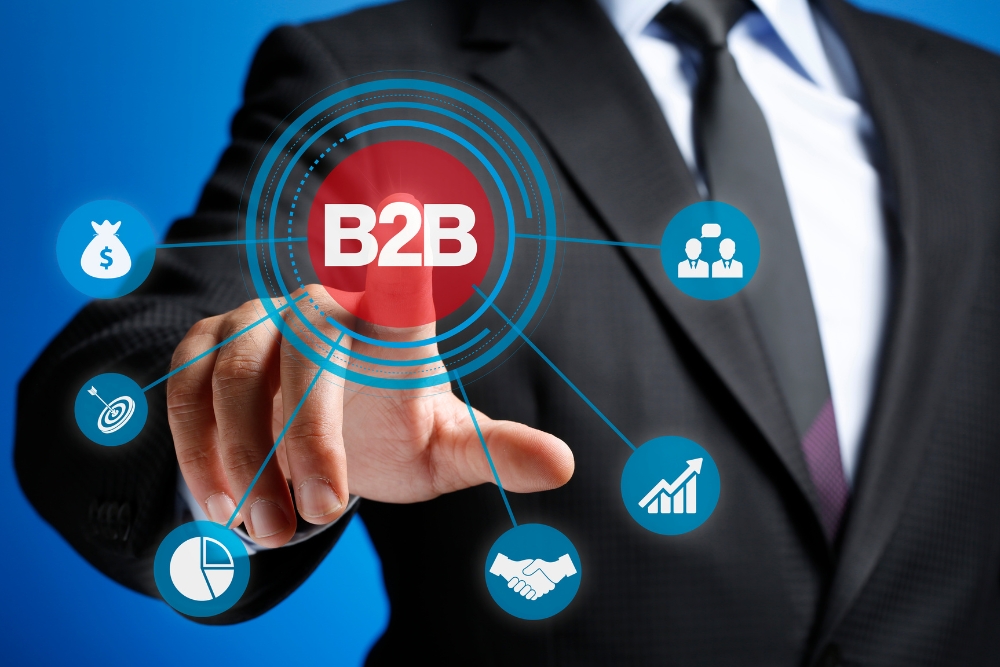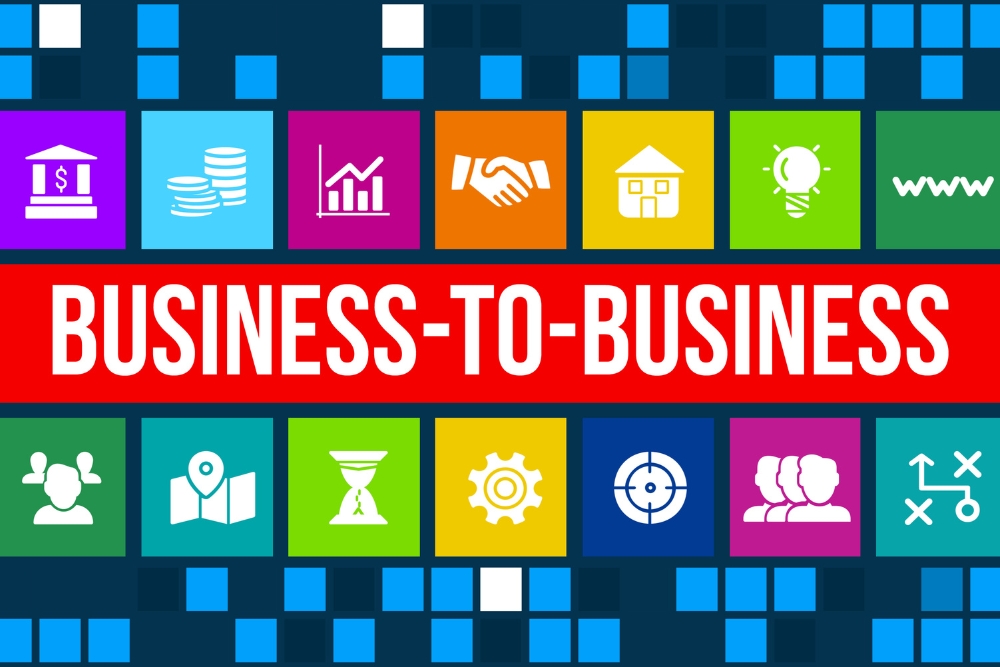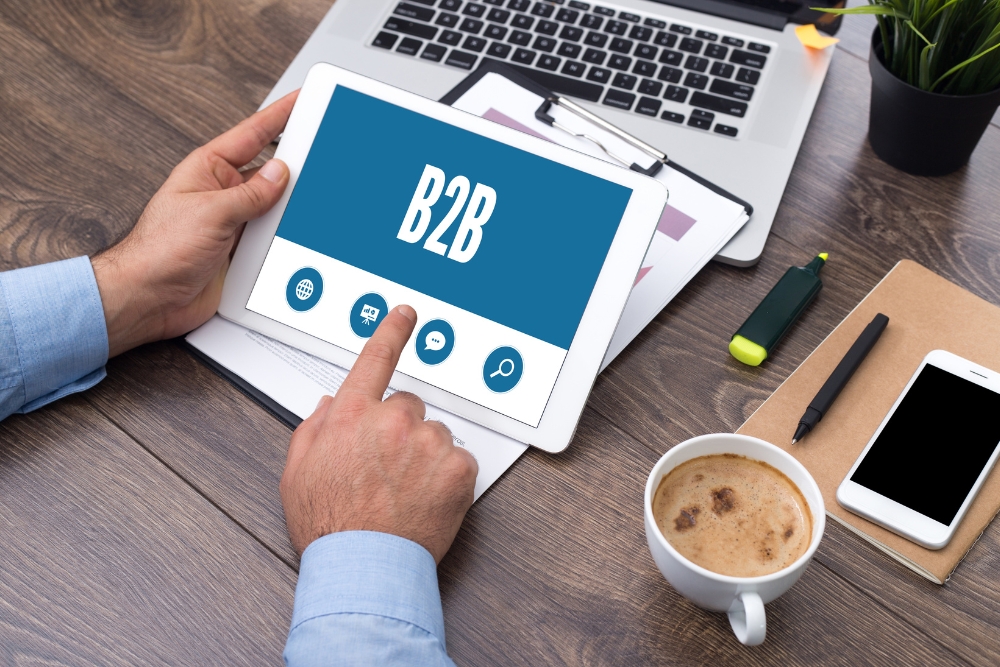Any business in the modern era without a solid digital presence is moving to the stone age. Research from Gartner says that 91% of businesses use digital channels or are taking initiatives toward digitalization, and B2B businesses are no different. In fact, Gartner has also projected that 80% of B2B sales will take place through online channels by 2025.
One of the major reasons why B2B, like other industries, has to move to digital routes is millennials. They have replaced the traditional email and calling methods with more sophisticated technologies like web portals. Whether you like it or not, B2B business owners cannot solely rely on their past reputations.
Web portals allow end users like resellers, suppliers, distributors, etc., to access information from remote locations at their desired times.
Here is a detailed guide on B2B web portal, its benefits, and the B2B web portal development process.
What is a B2B Web Portal?
A B2B portal is an online platform designed to help businesses easily access documents, information, products, and services. Companies commonly use B2B portals to connect and do business with distributors, suppliers, trading partners, and others.
B2B web portals serve as comprehensive online resources where customers, partners, and suppliers can quickly
- Find your products and services,
- Access relevant content, and
- Make transactions.
Depending on your goals, you can use it as a marketplace, a sales tool, or a platform for collaboration.
Who are the common end Users of B2B Portals?

The end users of your B2B web portal may commonly include resellers, producers, institutions, and government entities.
Resellers
Resellers buy your products in bulk and sell them in their own retail locations. Having your brand featured in well-known marketplaces can significantly boost your sales and enhance brand recognition.
Producers
These clients purchase products from your B2B platform to use as raw materials in their own production processes. For example, restaurants may buy meat, or publishing companies might acquire design services.
Institutions
This category includes healthcare facilities, religious groups, educational organizations, and other non-profits. These customers prefer purchasing high-quality products or services at lower prices.
Government Entities
Governments represent a major opportunity as clients. You can target local agencies or explore selling to international governments as well.
Types of B2B Web Portals

The following are the common types of B2B web portals.
Financial Portals: They address specific financial needs with features such as payment processing, invoice management, financial analytics, credit checks, automated transactions and cash flow management.
Marketplace Portals: Marketplace portals are virtual marketplaces for businesses to connect, trade, and collaborate.
Collaboration Portals: They facilitate project collaboration and real-time communication. Common features in collaboration portals include document sharing, project management tools, team communication channels, task tracking, etc.
Knowledge-sharing Portals: Focus on sharing industry insights, best practices, and educational resources. Common examples include forums, articles, discussion boards, and training materials.
Procurement Portals: They centralize and automate purchasing activities. Notable features Include Supplier directories, Catalog management, Order management systems, Request for proposal (RFP) functionality, etc.
Industry-specific Portals: They have customized features to meet the needs of certain industries, such as healthcare, logistics, etc.
Partner Portals: Partner portals support communication and collaboration with partners, offering resources for lead management and joint marketing campaigns.
Supplier Portals: Improve collaboration with suppliers through tools for onboarding and inventory management.
Advantages of B2B Web Portal Development

B2B web portals give clients or end users a seamless online experience. Following are the key benefits of B2B web portal development.
Transparency
Successful B2B businesses depend on transparency. B2B web portals enable vendors to share essential information about orders, shipping, transactions, and invoices in one accessible place. Users can access these portals from anywhere, anytime, which allows real-time monitoring and data analysis.
Customization of Data
Just like individual customers, businesses also want to see only relevant information and aim for good deals due to budget limitations. B2B sales portals allow businesses to present customized products and offers that meet specific needs. Custom B2b web portals improve customer focus by adding features like FAQs and can serve various industries.
Cost Efficiency
Self-service B2B web portals provide clients with up-to-date product details and documentation. This feature reduces or even eliminates the need for extensive support staff. Ultimately, it allows customers to quickly find answers while your support team can concentrate on more complex issues.
Improved Analytics
Integrating various tools into a B2B web portal helps businesses track product demand and adjust marketing strategies based on data insights, which ultimately drives revenue growth.
Essential Features for B2B Web Portal Development
There are generally three options for building a B2B web portal:
1. You do it on your own, which not only takes the required skills but time as well. Hiring in-house web developers is also expensive, especially for small businesses.
2. Use a ready-made solution. This option may not allow you the desired amount of customization, but it is a better option.
3. Hire a web portal development firm, which is a common choice and we, Marktech, would love to help you with that.
Although the needs and requirements vary from business to business, the following are some essential features to consider in any B2B web portal development.
1. Customizable Dashboard
Users must be able to create personalized dashboards that display relevant data and key metrics, such as profitability, sales, and order status. It gives users quick access to important information.
2. Streamlined Navigation
A simple navigation system is crucial for helping users find information easily. An organized menu with clear categories can make the browsing experience more efficient.
3. Secure Payment Processing
Integrating secure payment gateways is important for facilitating safe online transactions between businesses and ensuring compliance with security standards.
4. Search Function
A good search feature makes it easy for the users to quickly find products or relevant information which improves usability. Also, the search bar should be prominently placed on the portal’s homepage.
5. Order Management System
The portal should enable businesses to place, track, and manage orders seamlessly. Key features should include order history, notifications, status updates, and options for managing returns or cancellations.
6. Reporting & Analytics
The portal must include strong reporting and analytics capabilities to help businesses track metrics such as sales performance and customer behavior. Analytics are essential for informed decision-making.
7. Mobile Responsiveness
Mobile devices are a source of more than 60% of web traffic. Now, as most of the users access the internet via mobile devices, the portal must be adaptable and optimized for smartphones and tablets to ensure a smooth experience on any device.
Frequently Asked Questions
How much does a B2B web portal cost?
The cost of a B2B web portal depends on certain factors, such as the total number of web pages, the number of integrations required, and a website’s functionality. Still, a business can expect to pay between $10,000 to $250,000 for B2B web portal development. Again, it depends on a business’s needs or requirements. You can also check out our web development packages.
How to create a B2B web portal?
Common steps in developing a B2B portal usually include:
- Defining goals and objectives
- Analyzing the buyer’s journey
- Choosing the business model
- Creating the website design
- Adding seller features
- Setting up payment options
- Streamlining order management
- Implementing shipping solutions
Marktech B2B Web Portal Development Services
Hiring a web development company gives you access to a better pool of expertise and skilled professionals, and it is a cost-effective option as well. At Marktech, we provide customized B2B web portal development services according to our customers’s unique requirements. Click here for a free consultation of customized B2B web portal services to drive business growth.
